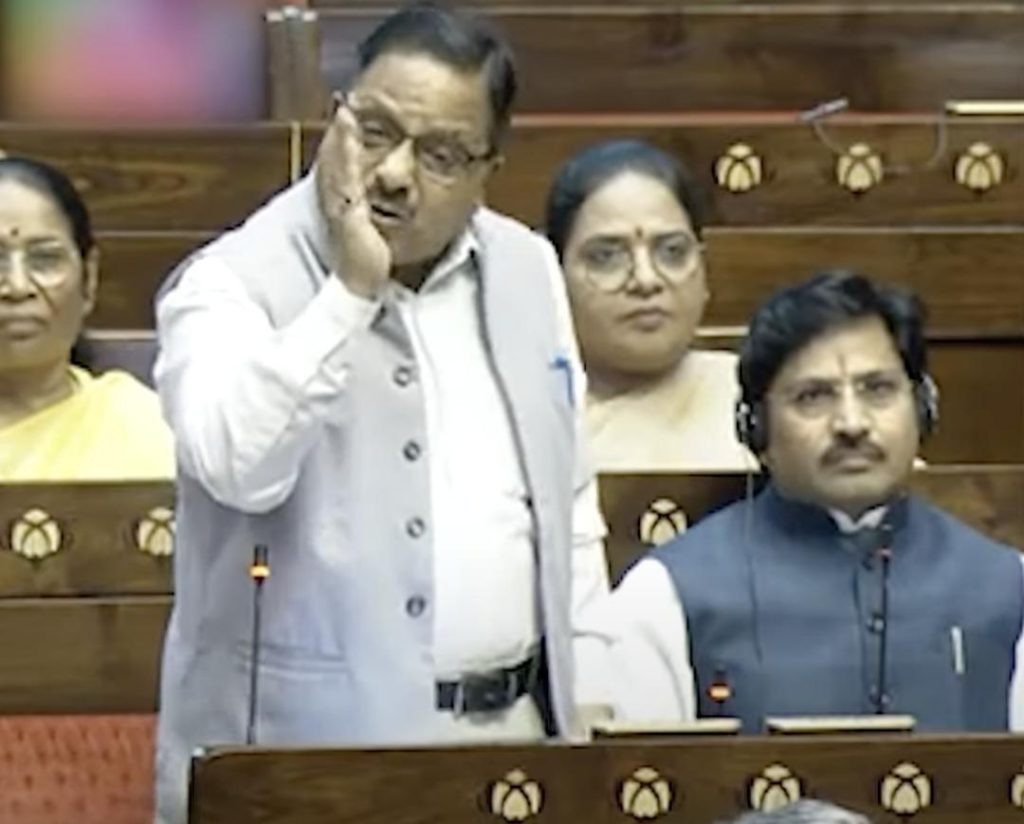
Should I Read the Quran and Tell You What’s Written in It: BJP MP Radha Mohan Das on Waqf Bill
The Waqf Bill, a contentious piece of legislation aimed at reforming the management of Waqf properties in India, has sparked heated debates in the country’s political circles. The bill, which seeks to bridge the gap between the government and the Waqf Board, has been met with resistance from various quarters, including the opposition parties. During the discussion on the bill in the Lok Sabha, a BJP MP, Radha Mohan Das, made a remark that has left many stunned. He asked if he should read the Quran and tell what is written in it, sparking a controversy that has far-reaching implications.
Das’s comment was in response to the allegations made by the opposition parties that the Waqf Board was mismanaging the properties under its control. The opposition parties claimed that the board was not maintaining proper records of its properties, leading to malpractices and corruption. Das, in his defense, quoted the Quran to support his argument, saying that the holy book emphasizes the importance of keeping written records of transactions.
“The Quran says that even if one rupee is given to anyone, there should be a written record…And you say you have so many properties without a record,” Das said, addressing the opposition parties. His comment was met with outrage from the opposition benches, with many MPs accusing him of being disrespectful and uninformed about the Islamic faith.
Das’s remark has sparked a heated debate about the role of religion in politics and the limits of religious expression in public discourse. While some have defended Das’s comment, saying that he was simply pointing out the hypocrisy of the Waqf Board, others have condemned his actions, saying that they were an affront to the Islamic faith.
So, should Das have read the Quran and told what is written in it? Is his comment a legitimate critique of the Waqf Board’s practices or an affront to the Islamic faith? Let us examine the context and implications of his remark to better understand the controversy.
Firstly, it is important to note that Das’s comment was not a gratuitous attack on the Islamic faith. Rather, it was a specific critique of the Waqf Board’s practices, aimed at highlighting the importance of transparency and accountability in the management of Waqf properties. The Quranic verse he quoted emphasizes the importance of written records in transactions, and Das was using this verse to support his argument that the Waqf Board should maintain proper records of its properties.
However, Das’s comment has been criticized for being insensitive and uninformed about the Islamic faith. Critics argue that he was not qualified to interpret the Quran or to use it to support his argument, and that his comment was an affront to the Islamic faith. This criticism is valid, as Das’s comment did lack sensitivity and understanding of the Islamic faith.
Moreover, Das’s comment has also been criticized for being a distraction from the real issue at hand. The Waqf Bill is a complex piece of legislation that aims to reform the management of Waqf properties in India. The bill seeks to increase transparency and accountability in the management of these properties, and to ensure that they are used for the benefit of the community. Das’s comment, while intended to support his argument, has diverted attention away from the real issues and created a culture of fear and mistrust.
In conclusion, Das’s comment has sparked a heated debate about the role of religion in politics and the limits of religious expression in public discourse. While his comment was intended to support his argument about the Waqf Board’s practices, it lacked sensitivity and understanding of the Islamic faith. Instead of creating a culture of fear and mistrust, we should focus on engaging in respectful and informed discussions about the issues at hand. The Waqf Bill is a complex piece of legislation that requires careful consideration and debate, and we should approach it with sensitivity and respect for the Islamic faith.
Source: https://www.youtube.com/watch
Note: The above blog post is a analysis of the news article and the views expressed are of the writer and not necessarily of the news source or the politicians mentioned in the article.





